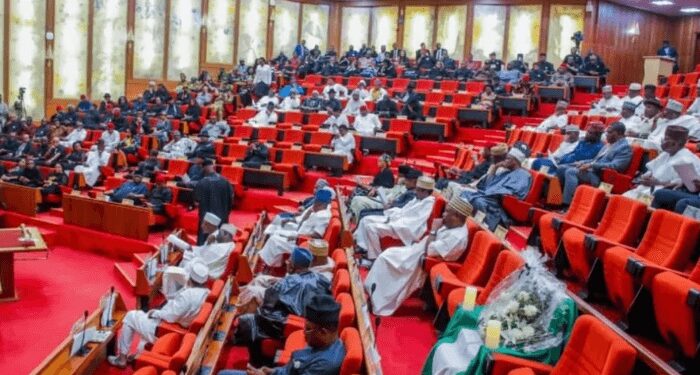- By Halimah Olamide
The Senate on Tuesday passed the new Minimum Wage bill into law formalising the agreement between the Federal Government and the organised Labour over N70,000 cap.
NPO Reports that President Bola Tinubu had on Tuesday forwarded the bill to the Senate earlier which was read on the floor by the President of the Senate, Godswill Akpabio.
The President and the leadership of the Organised Labour had last Thursday agreed on ₦70,000 as the new minimum wage for Nigerian workers. President Bola Tinubu on Tuesday transmitted a national minimum wage bill to the National Assembly for consideration and passage.
The President also asked the lawmakers to reduce the time for periodic review of the national minimum wage from five years to three years and related matters.
The bill which all scaled through the process within one hour, seeks to raise the minimum wage to N70,000 from the N30,000.
The bill also said that the wage would be reviewed every three years.
Majority Leader, Opeyemi Bamidele, who led the debate said N70,000 was agreed upon by all the parties after negotiations.
“This is part of the federal government’s short term measure to mitigate the situation in the country,” Bamidele said.
On his part, Tahir Monguno, chief whip, said there is a need to review the minimum wage in line with economic realities.
“The review of the minimum wage used to be after every five years. It is now every three years,” Monguno said.
“There is a need to review it and bring it in tandem with the realities of society.”
Thereafter, the senate dissolved into the “committee of the whole” to approve clauses of the bill.
President Tinubu had last week asked the National assembly to increase the 2024 appropriation Act by N6.2 trillion.
The president said N3.2 trillion is for infrastructure projects and N3 trillion for recurrent expenditure.
Appearing before the lower chamber of the national assembly on Monday, Budget and Planning Minister, Atiku Bagudu had explained that the N6.2trn supplementary budget sent to the National Assembly was to be able to pay the minimum wage and also provide roads and other infrastructure.


